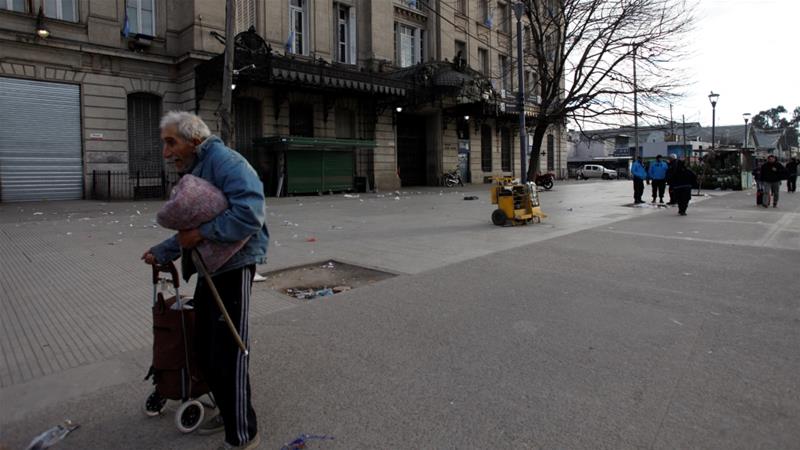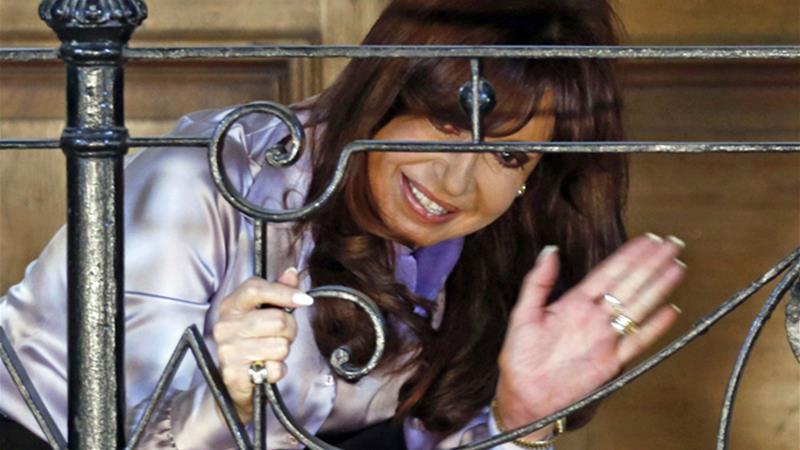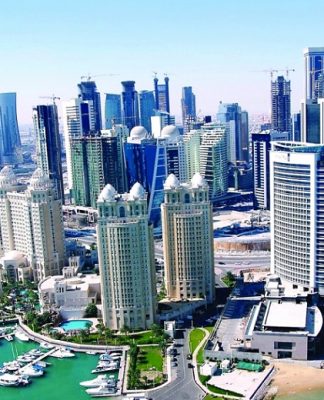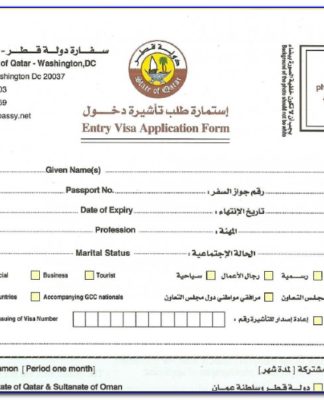Workers’ unions protest against government’s $50bn deal with International Monetary Fund and demand salary increases.
![Workers paralyse Argentina in third general strike Macri's government has come under fire for pursuing austerity policies [Martin Acosta/Reuters]](https://www.aljazeera.com/mritems/imagecache/mbdxxlarge/mritems/Images/2018/6/25/06fa9f3c12c0488c846cf1bb7803eea0_18.jpg)
A 24-hour general strike has largely paralysed economic activity in Argentina, with unions demanding salary rises and protesting against the government’s $50bn funding deal with the International Monetary Fund (IMF).
The strike on Monday, which was called by the country’s largest trade union confederation CGT, disrupted bus, train and taxi services, the daily Clarin quoted union representatives as saying.
Work stoppages by airline employees led to nearly 600 flights being cancelled and affected at least 71,000 passengers, according to the transport ministry.
The strike also hit food sales, petrol stations, schools, banks and ports. Roadblocks hampered traffic in the capital, Buenos Aires.
The labour action was in protest against a government decision to limit salary increases to up to 15 percent, while inflation is running at 26 percent.
Unions also oppose President Mauricio Macri‘s recent deal with the IMF, which granted Argentina a $50bn credit line to help it stem the plunge of the peso.
The loan conditions include slashing the fiscal deficit to 1.3 percent in 2019 from more than three percent last year – a target which is expected to involve heavy budget cuts and increase unemployment in the public sector.
 |
| Two policemen walk in the hall in the Jorge Newbery airport in Buenos Aires [Martin Acosta/Reuters] |
About nine percent of the workforce is currently unemployed, according to official figures.
“We can’t expect much from this government. They have taken us to the extreme situation of hunger,” labour leader Hugo Moyano told Radio 10, accusing the government of having “surrendered to the IMF”.
The strike had the backing of some leaders of Argentina’s Catholic Church, who called on the government not to cut funds earmarked for helping the poor.
Macri, a pro-business president who took power in December 2015 after more than a decade of leftist rule, said the strike “does not contribute anything”.
“There has not been a government in decades that has shown so much concern for employment and the worker and for creating new opportunities,” Clarin quoted the president as saying.
This is the third general strike organised by CGT – numbering around three million members – against the Macri administration.
Previously, Argentinians organised general strikes in April and December 2017. Many have criticised Macri’s government for pursuing austerity policies that disproportionately affect the working class.
SOURCE: AL JAZEERA AND NEWS AGENCIES



























